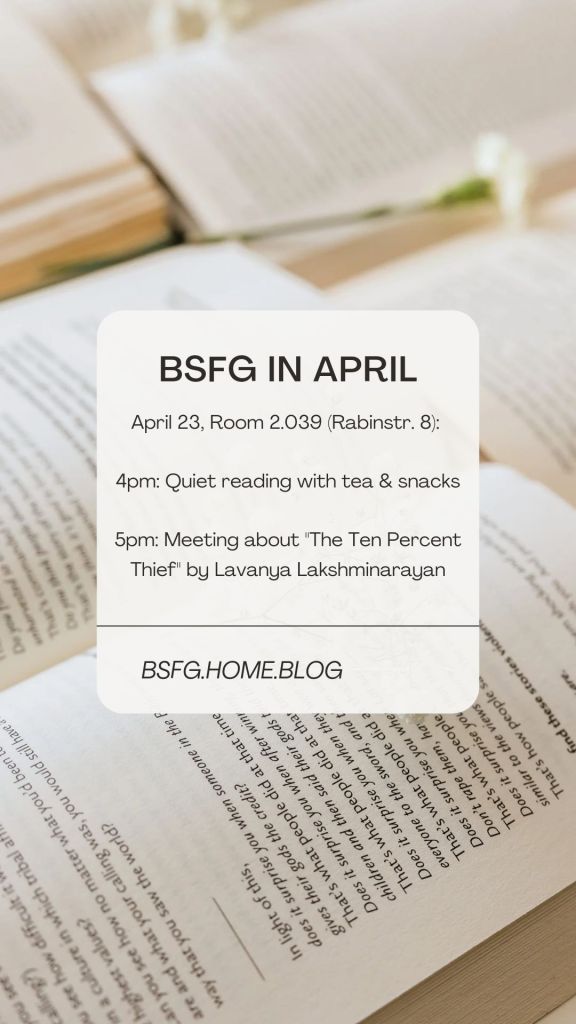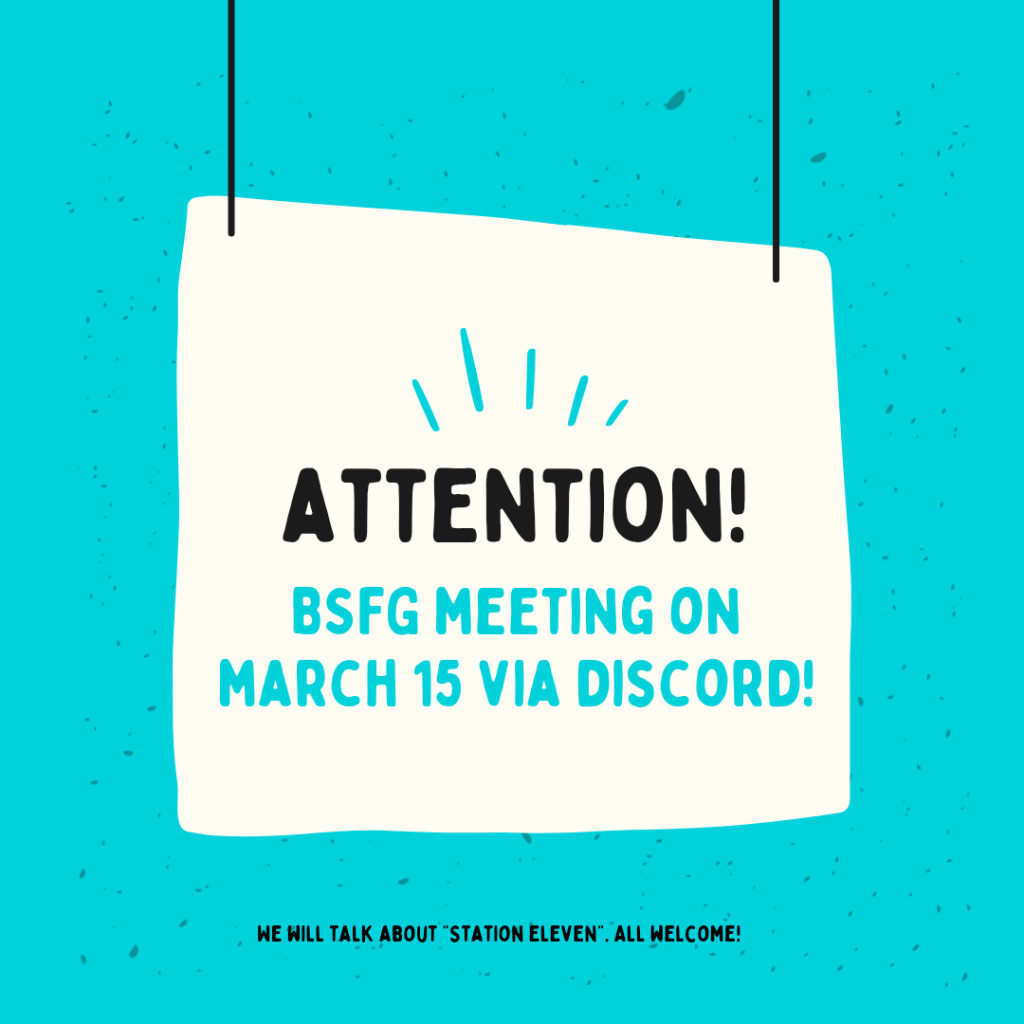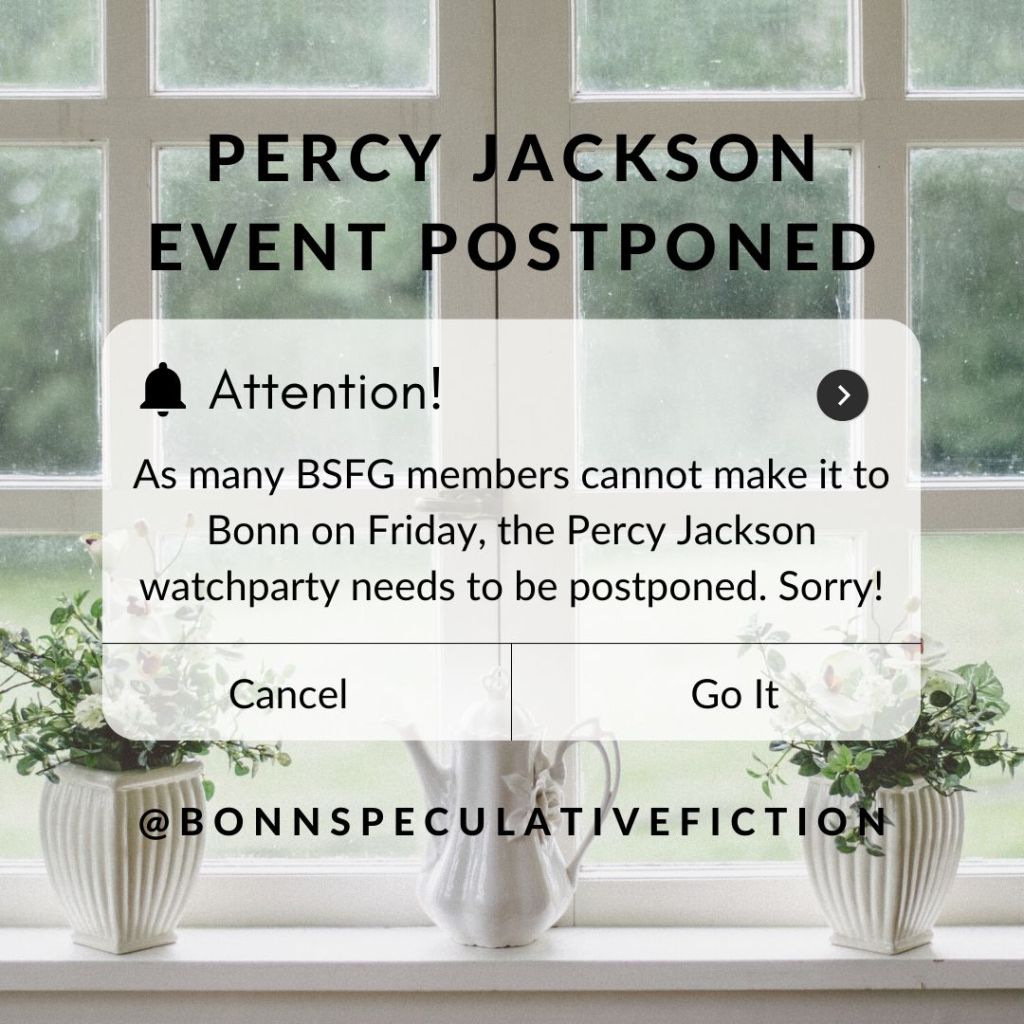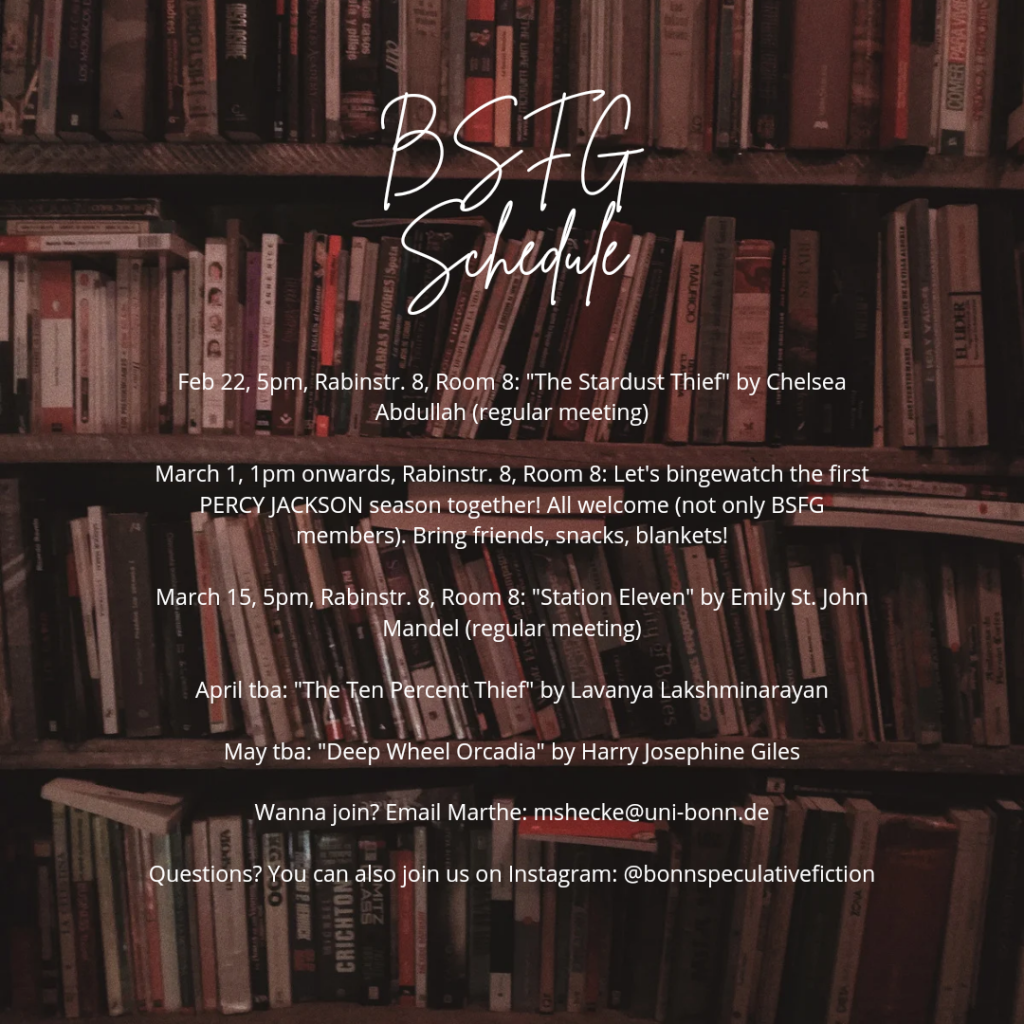What we enjoyed about the book:
- Many different focalisers
- AI inside a character’s head taking over –> uncanny persona, own agenda –> AI life of its own
- Uncanny elements, dystopia but still felt realistic
- Creepy but well done technological advancements –> connected to our reality
- “I thought I didn’t like it, but I did like it”
- main character is the world!
- all the chapters are connected, new chapters surprised us
- “Welcome to the Machine” –> tour guide –> more of that would’ve been cool
- “Ten Percent Thief” new title, different expectations, old title more fitting
- You get invested in the world
- Nina’s adoptive parents failed to introduce her to her background; no chance for her to know her heritage –> parallels to adopting children with a different cultural or ethnical background and failing to take care
- Funny bits: woman has to go shopping herself
- System is forcing you into technology
- Surviving in a technocracy
- Emoji parts: ridiculous?!
- “Black Mirror” vibe (Marthe recommends you watch “San Junipero” to start with, her favourite)
- Celebrity who got pregant chapter was so interesting! Post-feminist?! Realistic!? Society telling women how to be pregnant, even then. –> Person also barely talks, everybody just talks about her
- All about productivity and how we lose humanity
- Online discourse, being entitled to an opinion –> pregnant women
- Pregnancy pods: make pregnancy shorter to increase productivity
- Resistance was cool, systemic, smart, organised
- Using the footage to then influence the virtuals –> weaponise the footage –> use the media
- Forest: art and community
- Connection between revolutionary ideas and art –> music, forest, people coming together –> power of art
- Nina’s hybrid identity sad, will never belong to any group properly
- Tragedy, sad
- Can the productivity focus be unlearned on a society-level?
- Hope for the future? Will the analogues be good leaders? Ex-virtuals as good leaders?
- Play with language in the AI chapter was amazing: “you”, “we”, “I” –> blurring boundaries; trying to learn what love is; use it against the person
- Train guide: language; psychological observation of the tour guides; slipping in language; what are you allowed to say and what aren’t you allowed to say
- Language does make reality –> brilliant theme of the book in its entirety
- HoloSphere a different reality
- Short story vibe, extremely well connected; unexpected structure; deeply care about people; imagination can fill in the gaps?
- Perfect length
- Indian caste system: lowest caste –> Analogues
- Vegetable farm: only way for the analogues to be productive –> spare parts –> “Cloud Atlas”; “Never Let Me Go”; “Promised Neverland” (trope)
- Capitalism gone wild
What we discussed:
- Explore Virtuals more who want to improve the situation of the Analogues
- Switch teachers to robots; how does the society work? Is this really functional? Everybody is going to be a robot in the end?
- Everything controlled by the AI?
- How do other cities work???? What about cities that are not Bell Corp.?
- What’s outside the city? Can one flee to another city? Refugees?
- Some chapters too short? Bridges between different stories as vignettes? Ray Bradbury vibes
- Climate change & construction of this world could be explored me
- Cover a bit misleading, looks too fantasy-ish
Weird Ratings:
- 4/5 Preggobots
- 4/5 Hyperreality videos
- 5/5 Socially awkward people hiding in cakes
Book recommendation by R. (thank you): If you liked “The Ten Percent Thief” –> “The Free People’s Village” by Sim Kern



